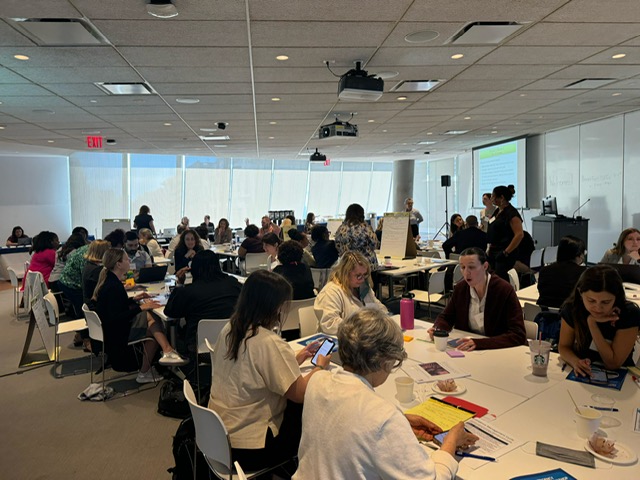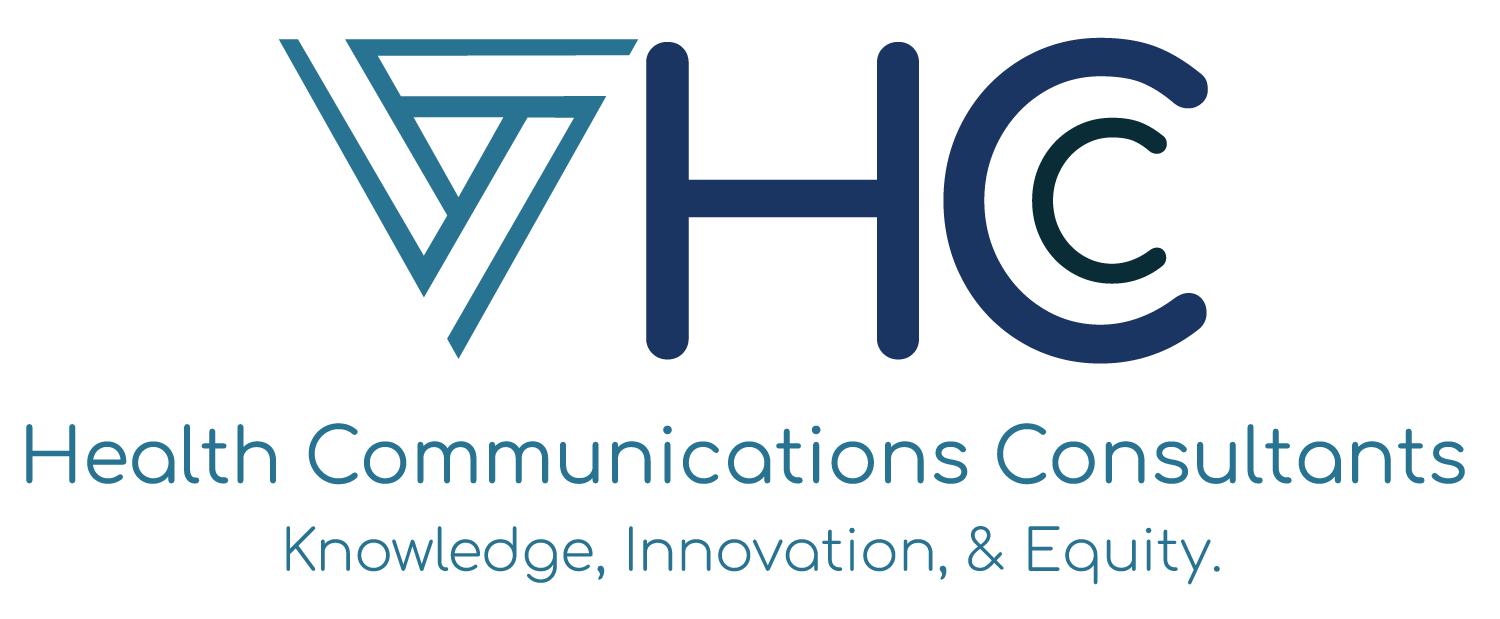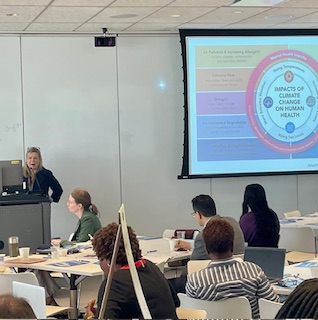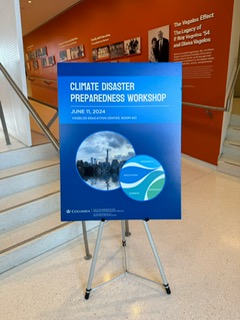Regional Workshop on Maternal Newborn Health Preparedness for Climate Disasters
On June 11, 2024, the Collaborative for Women’s Environmental Health at Columbia University Irving Medical Center hosted a groundbreaking Regional Workshop on Climate Emergency Preparedness for Maternal-Child Health (MCH) Populations. This initiative sought to enhance the capacity of health care, public health, and social service providers to address the needs of maternal and newborn health in climate disaster preparedness, response, recovery, and mitigation efforts.
The workshop, conducted in collaboration with Health Communications Consultants, Inc. (HCC, Inc.), and supported by experts from the Centers for Disease Control and Prevention (CDC), Stanford University School of Medicine, and the National Association of County and City Health Officials (NACCHO), was an essential step in building workforce capacity and competency in this critical area.
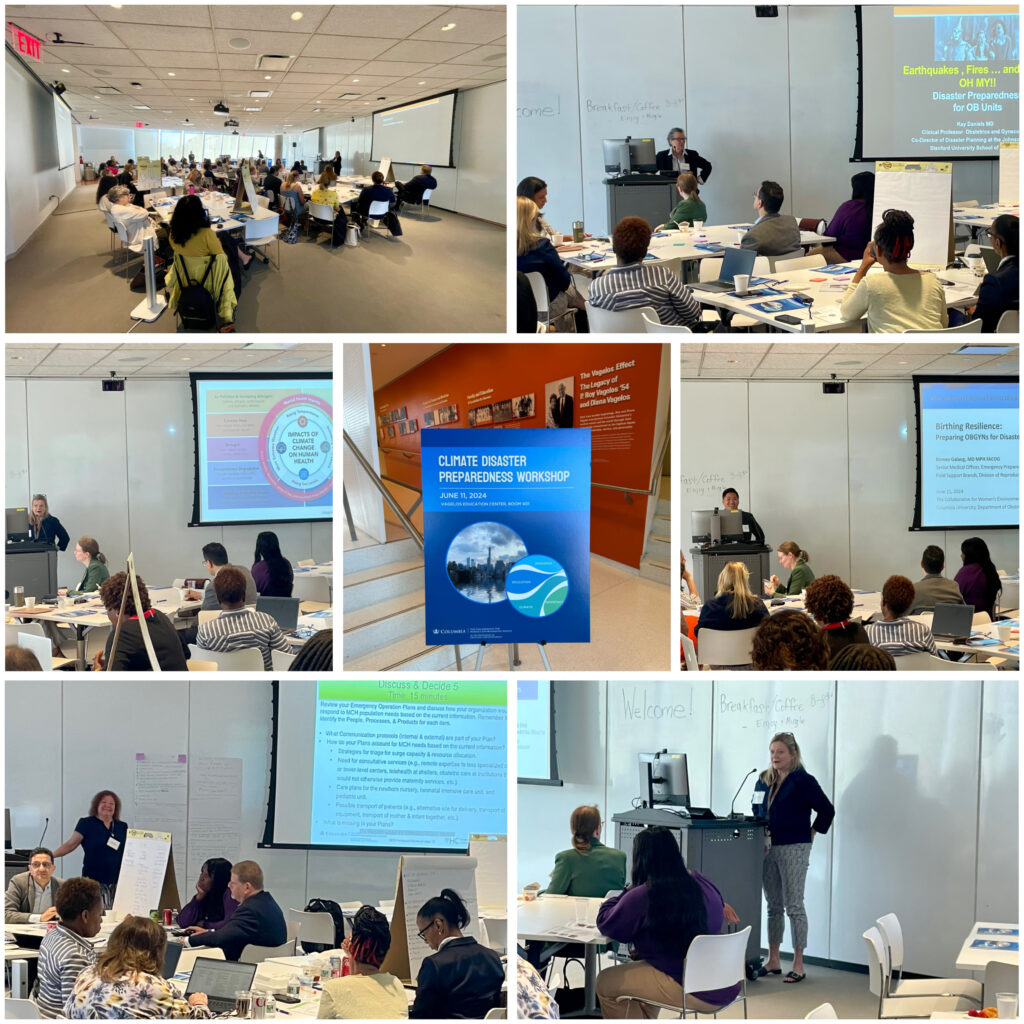
A Collaborative Effort for MCH Preparedness
This workshop brought together experts from over 15 area hospitals, community-based MCH organizations, and city health and emergency management officials to foster critical conversations and collaborative planning. The goal was clear: address climate-related emergencies through a whole-community response that prioritizes maternal and child health.
Attendees explored best practices for ensuring that women who are pregnant, postpartum, or lactating, along with infants and young children, are at the forefront of preparedness, response, and recovery planning. Through a mix of case studies, interactive discussions, and collaborative problem-solving exercises, participants examined their departments’ and institutions’ policies, plans, and systems to identify gaps and determine actionable improvements.
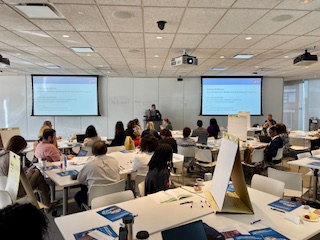
Workshop Highlights
- Insightful Presentations: Speakers provided valuable information on integrating an equity lens into emergency planning for MCH populations.
- Hands-On Planning: Participants collaborated to evaluate and refine preparedness plans, sharing resources and actionable strategies.
- Networking Opportunities: The event facilitated connections across hospitals, public health offices, and community organizations to strengthen regional response efforts.
This workshop exemplified a capability-based approach, focusing on assessing preparedness and identifying strategies to close the gap between written plans and actionable readiness. By integrating hands-on tools like PowerPoint presentations, worksheets, and supplemental resources, participants left equipped with practical strategies for their institutions.
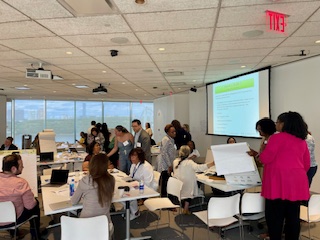
Health Communications Consultants, Inc. worked together with the planning and attending organizations to strengthen preparedness, build resilience and ensure that the most vulnerable among us receive the care they need during climate disasters. We are committed to keeping the conversation going as we work toward a safer, healthier future for maternal and child health populations in our communities.
